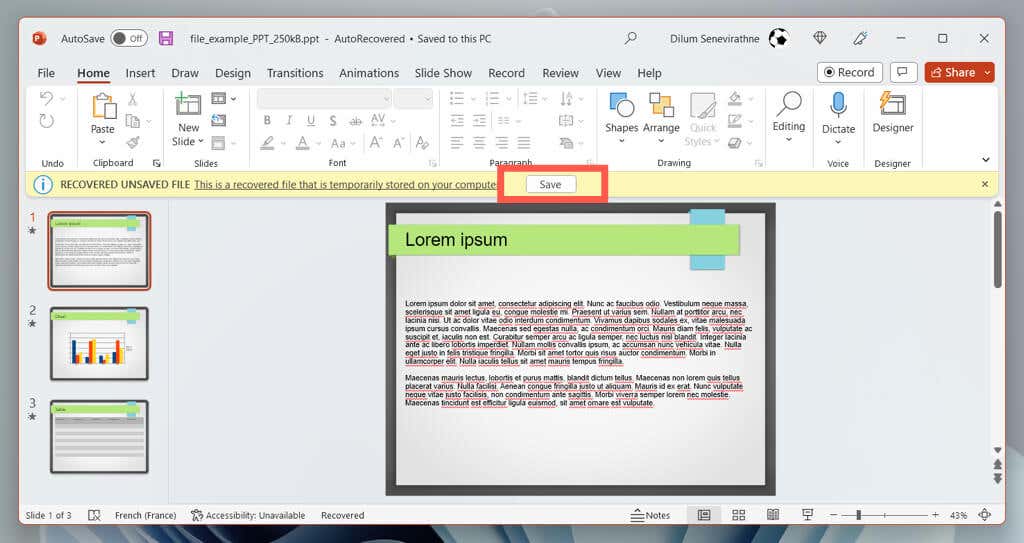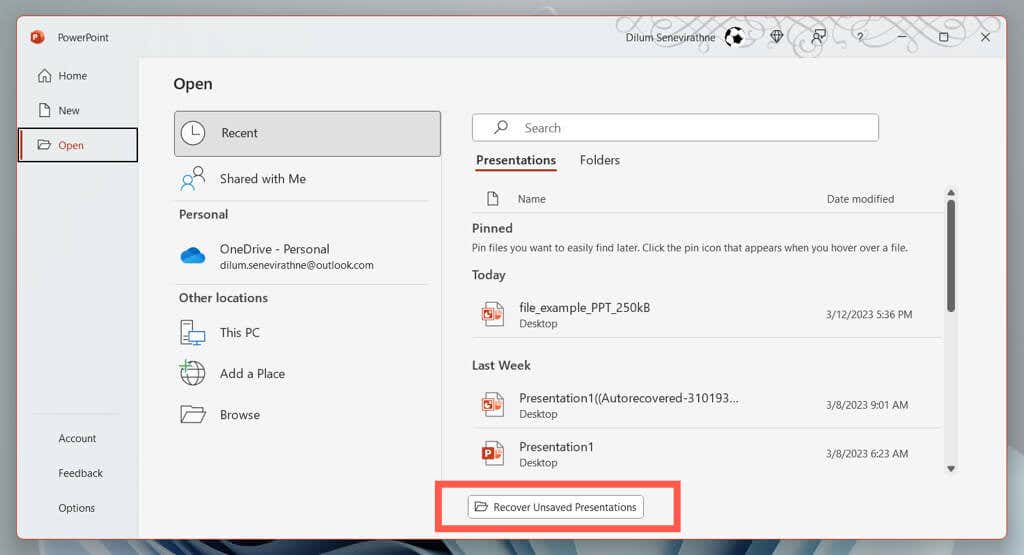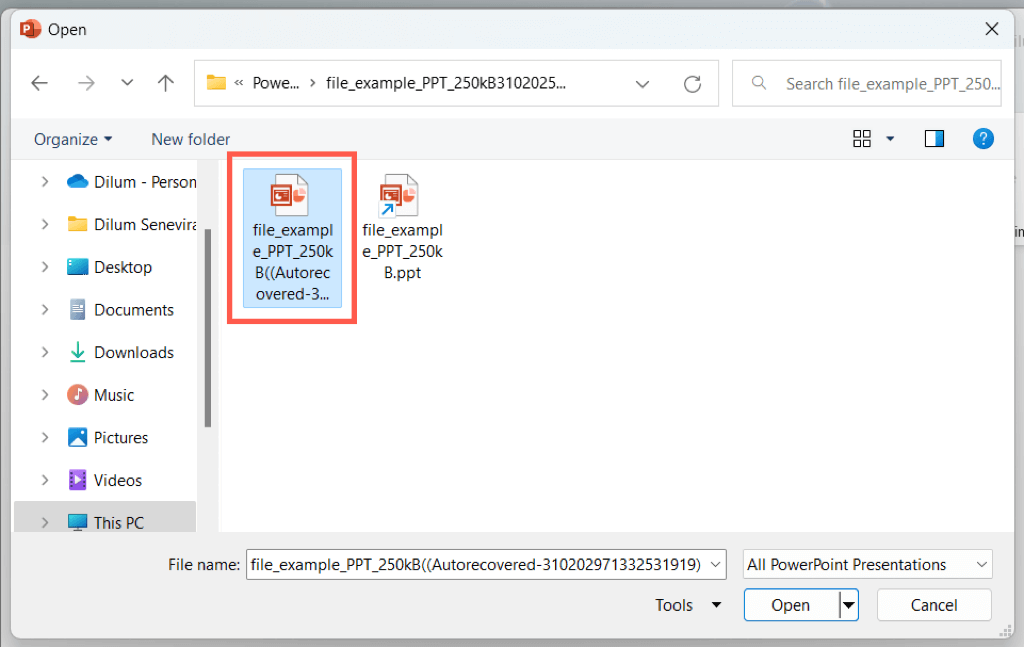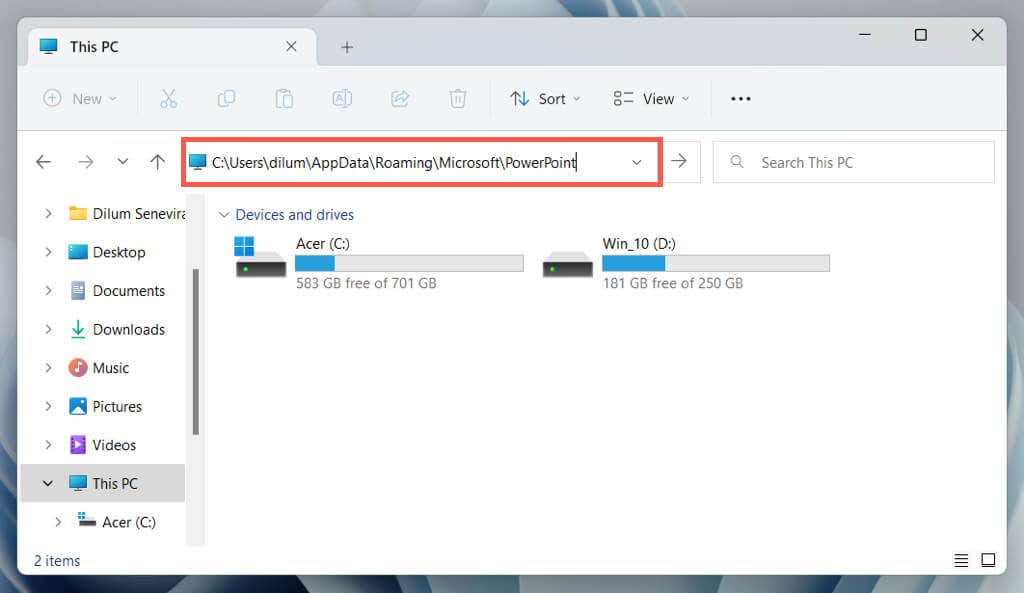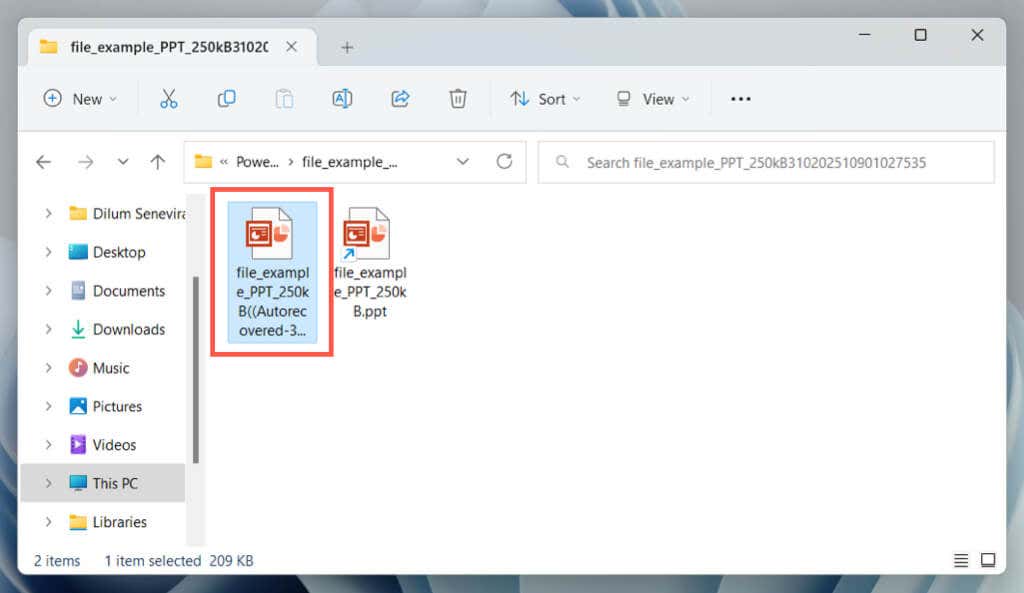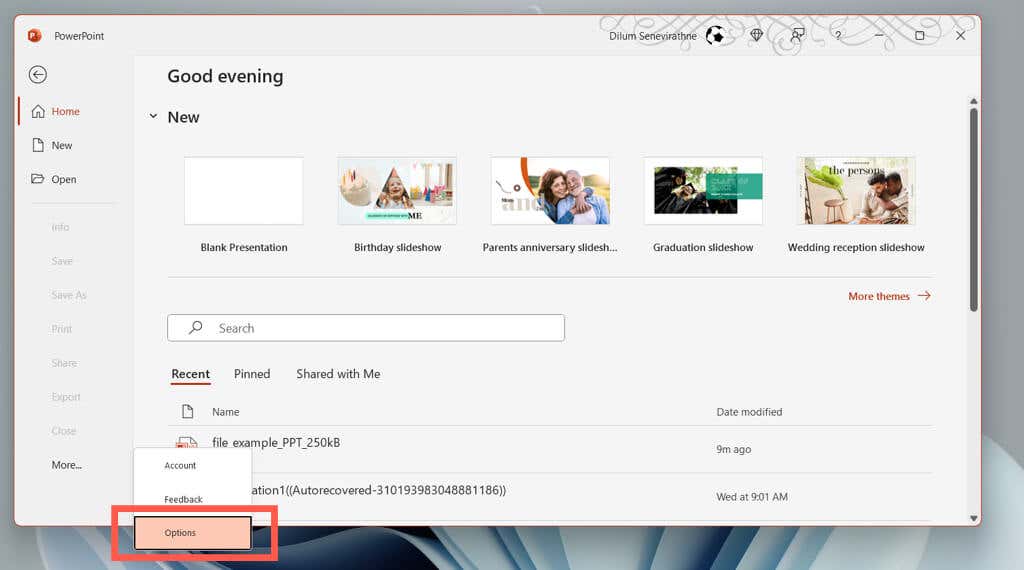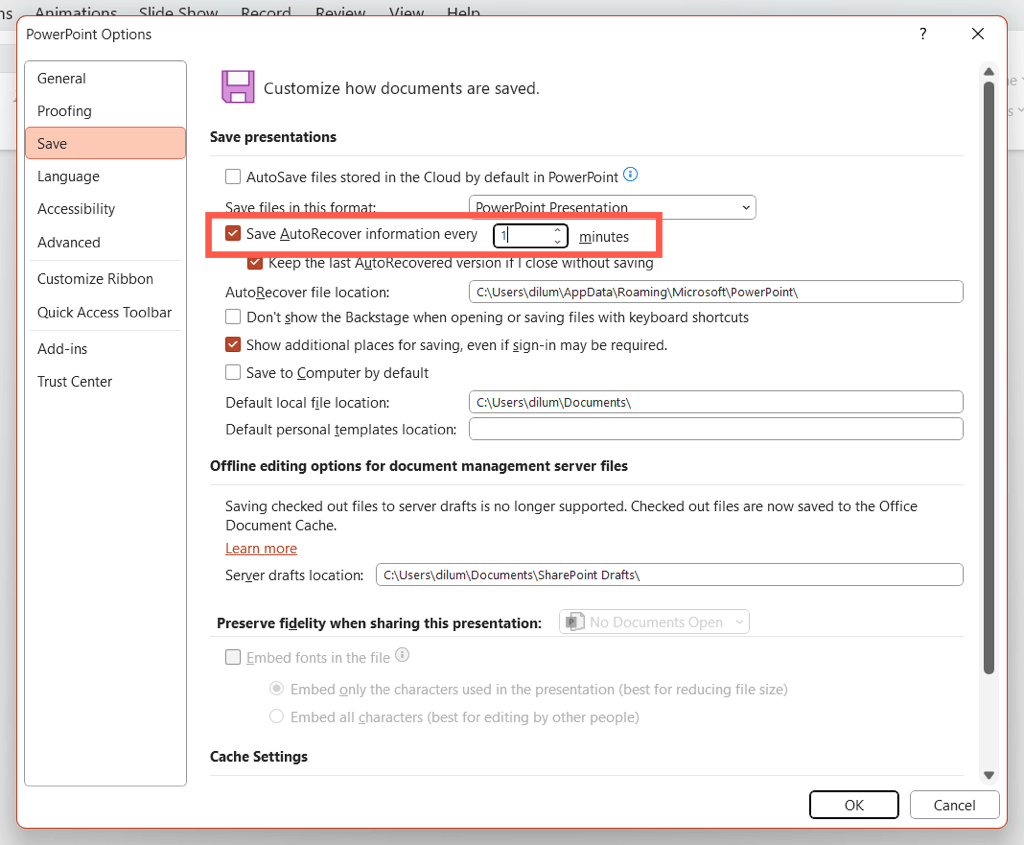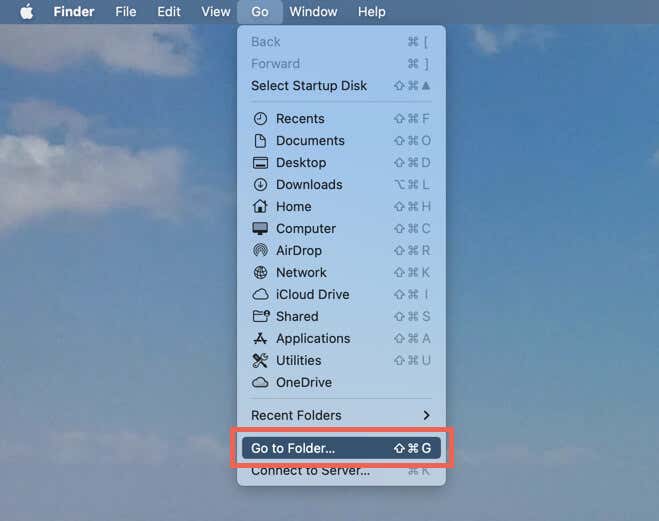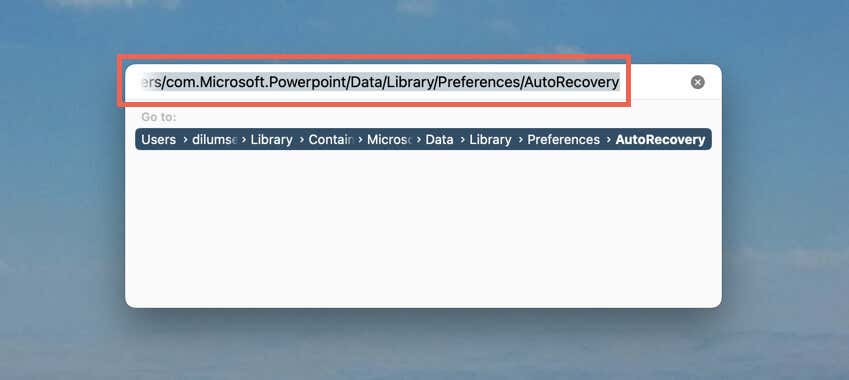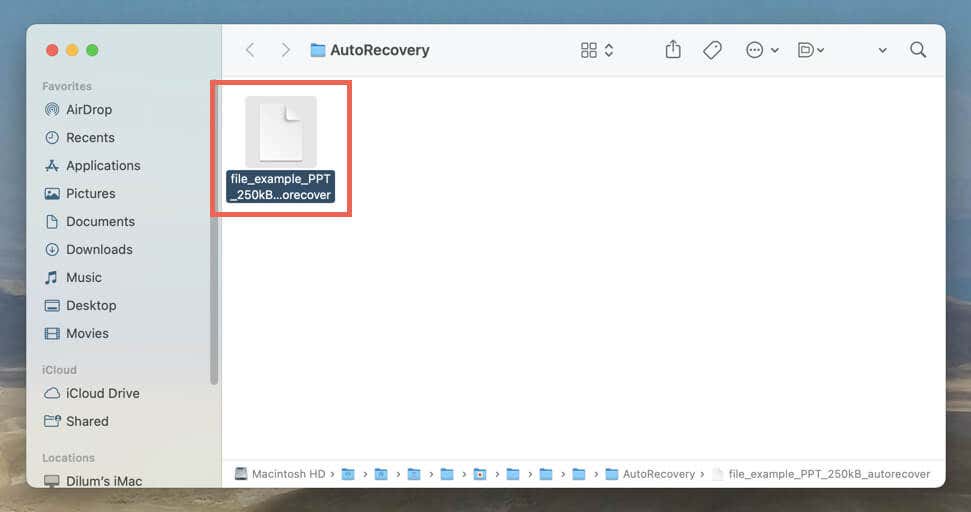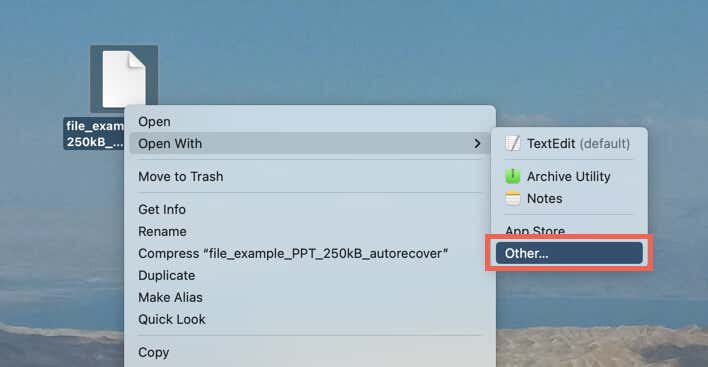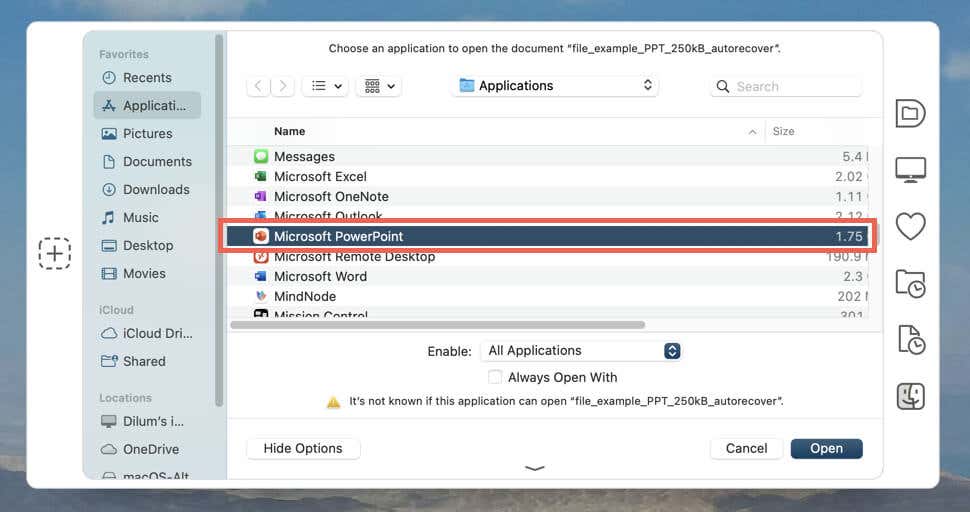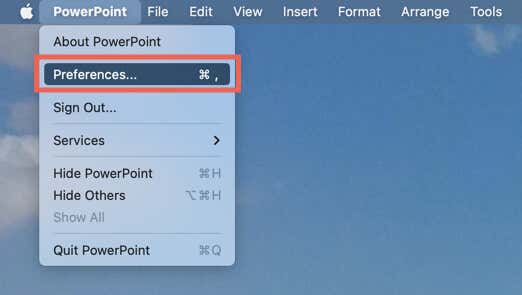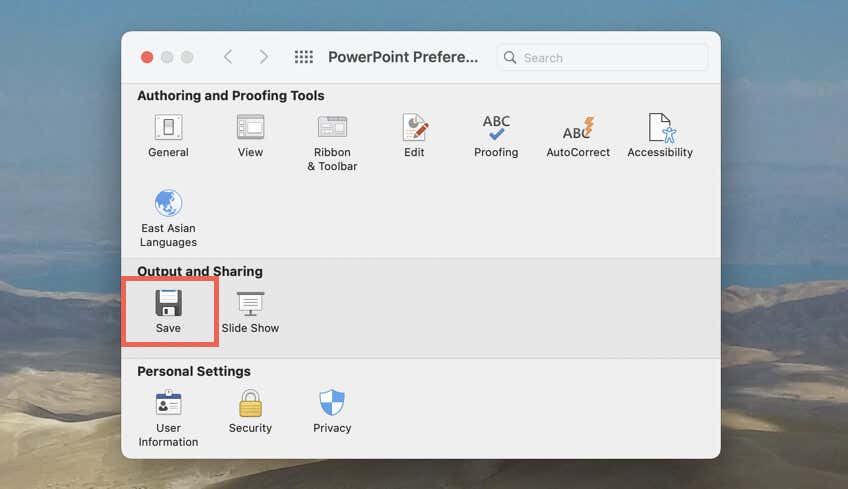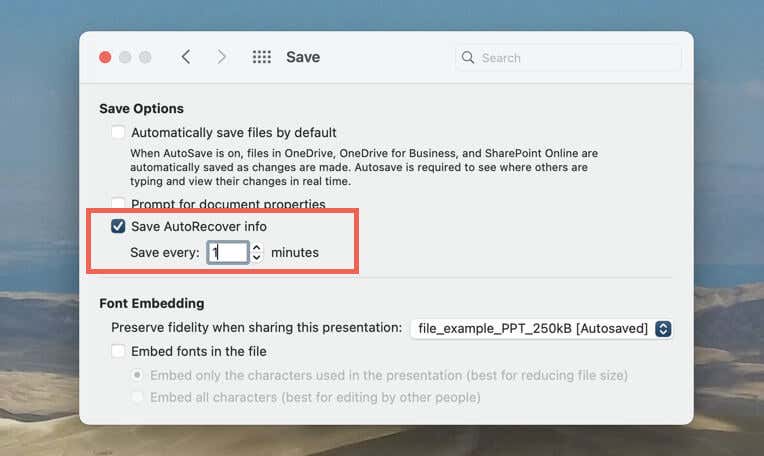Always happens five minutes before the meeting
It’s not uncommon to lose hours of work in PowerPoint because of an unexpected system crash, shutdown, or power failure. Microsoft knows that, which is why the program comes with AutoRecover. It’s a feature that helps you retrieve unsaved PowerPoint presentations.
This tutorial will teach you how to use Microsoft PowerPoint’s AutoRecover feature in Windows and macOS, including other tips to recover lost or deleted PowerPoint presentations.
Recover Unsaved PowerPoint Presentations on Windows
Whenever you work on a presentation in Microsoft PowerPoint for Windows 10 and 11, the program’s built-in AutoRecover functionality makes periodic backups to a temporary file once every 10 minutes.
If you forgot to save a Microsoft PowerPoint document because of an unexpected issue, you can get it back. There’s no guarantee it may contain the most recent changes, though.
By default, AutoRecover opens the unsaved presentation when you relaunch PowerPoint after a system or application crash. If you see a Recovered Unsaved File banner, select the Save button inside to save it permanently.
In Microsoft Office 2021 and earlier versions of PowerPoint, a Document Recovery pane should show up to the left of the PowerPoint window, letting you pick the file you want to recover.
If that does not happen, you can view the AutoRecover folder with the following steps:
- Open PowerPoint and select Open on the Start Screen.
- Select the Recover Unsaved Presentations button.
- On the File Explorer pop-up, open the folder related to the PPT file you want to restore.
- Select the file and choose Open.
- Review the presentation and save it to your PC’s hard drive.
If the Recover Unsaved Presentations option is not visible or PowerPoint repeatedly crashes before you can do anything, visit the program’s AutoRecover file location and retrieve the presentation via File Explorer.
- Open File Explorer.
- Copy and paste the following into the address bar, replacing <username> with your Windows user name. Then, press Enter:
C:\Users\<username>\AppData\Roaming\Microsoft\PowerPoint
- Copy the unsaved PPT file you want to recover to another directory, then double-click to open it in PowerPoint.
To increase the frequency with which AutoRecover backs up your PowerPoint presentations and improve the chances of retrieving the most recent unsaved changes, you must:
- Select the File tab and choose Options (or More > Options).
- Select the Save category on the PowerPoint Options sidebar.
- Modify the box next to Save AutoRecover information every x minutes.
For example, enter a value of 1 if you want the PowerPoint recovery tool to back up unsaved changes every minute.
Recover Unsaved PowerPoint Files on macOS
Like on Windows, AutoRecover is available on Microsoft PowerPoint for macOS. If you’re working on a PowerPoint presentation on a Mac and experience a sudden crash or shutdown, you should be able to use it to recover the unsaved changes and prevent data loss.
Just re-open PowerPoint. AutoRecover should automatically re-open the presentation you were last working on, allowing you to save the changes permanently.
Suppose that doesn’t happen. Just:
- Open the Home button and choose Open.
- Select Recover Unsaved Presentations.
- Double-click the PPTX file you want to recover.
If the Recover Unsaved Presentations button is not visible, manually visit PowerPoint’s AutoRecover temp folder and retrieve the presentation via Finder.
- Open Finder and select Go > Go to Folder on the menu bar.
- Copy the following path and press Return:
~/Library/Containers/com.Microsoft.Powerpoint/Data/Library/Preferences/AutoRecovery
- Copy the file you want to recover to a different location.
Manually recovered AutoRecover backups for the Mac do not have a specified file type, so you must go through the following steps to view them in PowerPoint.
- Right-click the auto-recovered PPTX file and select Open with > Other.
- Select All Applications on the drop-down menu next to Enable.
- Select Microsoft PowerPoint within the list of applications and choose Open.
By default, AutoRecover saves your presentations every 10 minutes. If you want to increase the chances of recovering the most recent changes:
- Open PowerPoint and select PowerPoint > Preferences on the menu bar.
- Select Save.
- Modify the box next to Save AutoRecover information every x minutes and enter a new value—e.g., 1 to make AutoRecover back up your presentation every minute.
Other Methods to Recover PowerPoint Files:
Unsaved PowerPoint presentations aside, you might have to deal with misplaced or deleted PowerPoint files every now and then. When that happens, here are several ways you can try to get them back.
Check PowerPoint’s Recents List
If you can’t remember the location of a PPTX file, just check PowerPoint’s Recent list on the Start Screen. If the presentation is listed there, select to open it.
Use Windows Search or Spotlight
Your PC or Mac keeps an index of whatever’s in its internal storage. If you can remember the file name of a lost presentation (or even part of it), try searching for it through Windows Search or Spotlight Search.
Check the Recycle Bin or Trash
Windows and macOS store deleted items for 30 days, so check the Recycle Bin or Trash if you can’t find a presentation. If the PPTX file is inside, you can restore it to its original location.
Use File History or Time Machine
You should be able to recover a lost PowerPoint file if your PC or Mac is set to back up to an external hard drive. Learn how to retrieve deleted files or previous versions using File History or Time Machine.
Use a File Recovery Tool
If all else fails, use data recovery software to retrieve deleted PowerPoint files. Check our list of top file recovery programs for the PC and Mac.
Don’t Forget to Save or AutoSave Your Presentations
Losing an unsaved PowerPoint presentation can be a frustrating experience, but with AutoRecover, you can recover your work and stop having to start over from scratch.
Regardless, it’s best not to leave things to chance, so remember to always save your work frequently. If you prefer storing your presentations on OneDrive, use the AutoSave feature in Microsoft Office to avoid lost data.



